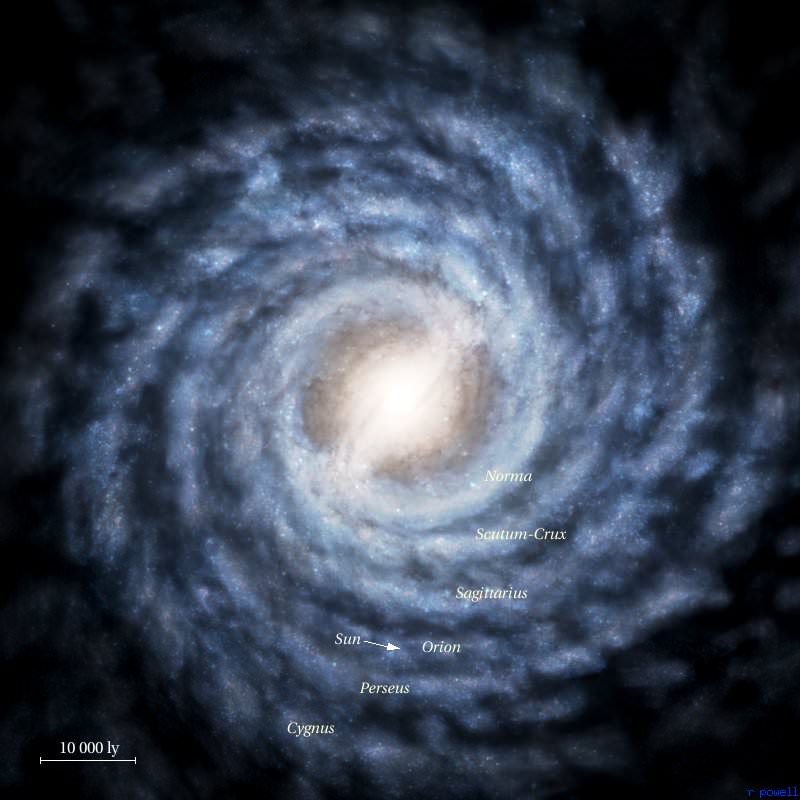[/caption]
The Milky Way is a spiral galaxy, measuring 100,000 light-years across, but only 1,000 light-years thick. Imagine a spinning record, but made of stars. The galactic equator is the halfway point between the top and bottom of that disk. Imagine you were traveling in a spaceship through the galactic plane. The moment you cross the midpoint of the disk, that’s the galactic equator.
Astronomers measure the position of an object in the sky using a coordinate system that’s sort of like latitude and longitude on Earth. They use two numbers: right ascention and declination. Right ascention gives a position east/west in the sky, and declination measures north/south. But there’s another measurement system that some astronomers use called the galactic coordinate system, which uses the galactic equator of the Milky Way.
This system imagines the Sun at the center, with 0-degrees being a line drawn straight from the Sun to the center of the Milky Way. You can then measure locations in a circle around the galactic equator. You can also measure locations above and below the galactic equator.
The north galactic pole is perpendicular to the galactic equator – 90-degrees above the equator, and the south galactic pole is below.
You might be interesting to know that the Solar System bobs up and down above and below the galactic equator. It takes 64 million years to complete a full cycle going above and below the galactic equator. If you’re heard that the Solar System is supposed to cross the galactic equator in 2012, don’t worry, that’s a myth. It takes 64 million years to complete that cycle, so there’s no way to know exactly when it will actually cross the galactic equator.
Although there’s no danger of crossing the galactic equator, some researchers think that there might be a danger of rising above the galactic disk.
If you’d like more info on galaxies, check out Hubblesite’s News Releases on Galaxies, and here’s NASA’s Science Page on Galaxies.
We have also recorded an episode of Astronomy Cast about galaxies – Episode 97: Galaxies.

